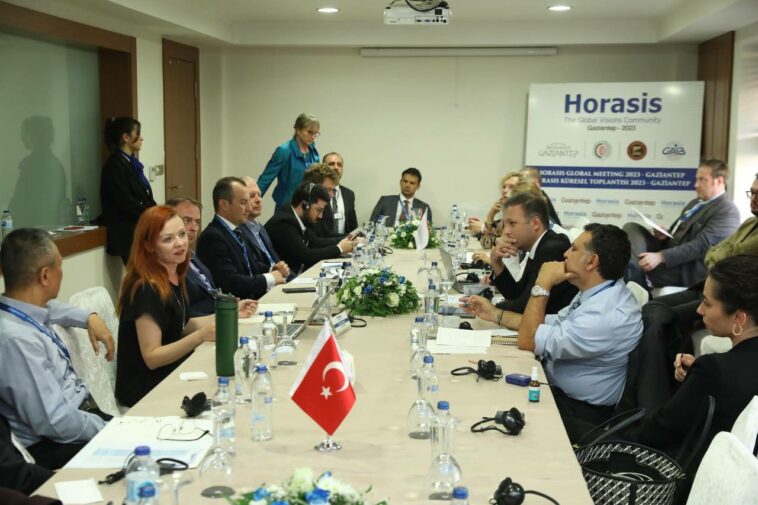Russia’s future is undeniably linked to its war in Ukraine. So, for what scenarios should the world brace itself in the coming months and years?
Horasis Global Meeting 2023, October 22-23 in Gaziantep, Turkey – an event that focuses on the critical issues of Innovation, Sustainability, and Reconstruction. We at UCMC were invited to give the Ukrainian perspective, presented by UCMC’s Marianna Prysiazhniuk, Head of the Hybrid Warfare Analytical Group who was joined by distinguished business leaders, government officials, and international organization representatives to discuss the influence of Russian operations of ‘Strategic Chaos’
UCMC’s Prysiazhniuk raised the enduring impact of Russian propaganda in 2023 and how its propaganda’s meta narratives continue to target and exploit a wide range of actors in the region.
Prysiazhniuk warned of the continuing threat of Russian propaganda aimed at causing chaos in a number of ways. First, she explained how Russia is expected to advance its interests by supporting and manipulating proxy groups in various regions, including political parties and governments aligned with Russian interests.
This strategy includes the promotion of “More ‘Freedom’ for Proxies.” She outlined how Russia’s influence on Hungary is currently visible, with President Orban seen as Russia’s vassal in promoting Russian propaganda in Europe; through the newly elected pro-Russian Slovakian PM, who promises to further impact Ukrainian aid; and Russia’s ongoing interference in Moldova, including supporting pro-Russia parties in anti-government rallies – all used to sow havoc and further the Kremlin’s agenda.
Following that, Prysiazhniuk cautioned how the Kremlin is expected to employ more “Innovative” non-conventional attacks, such as cyberattacks, disinformation campaigns, or hybrid warfare tactics, to advance its agenda, as well as the promotion of “More Unclear Solutions,” which deliberately seek to create ambiguity and uncertainty when proposing peacekeeping solutions. According to Prysiazhniuk, by keeping the solutions unclear, Russia will continue to offer vague or ambiguous proposals that can be interpreted in various ways, making it difficult for other parties to respond effectively and rendering any ‘peace deal’ useless. She used the Minsk agreements as an example, which lacked clarity and ambiguity, allowing Russia to interpret the agreements in ways that served their interests.


